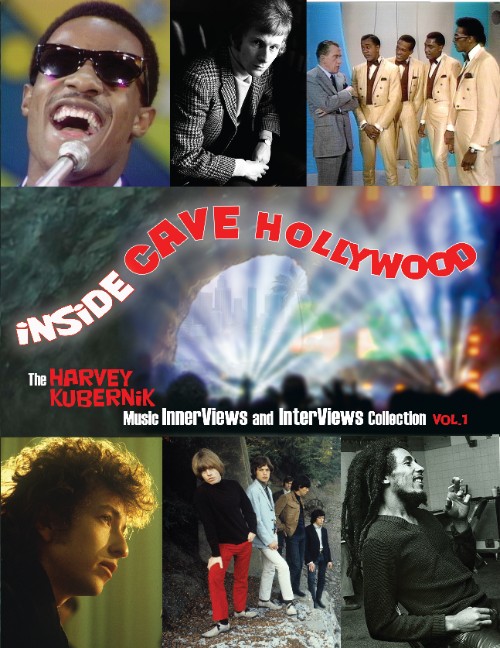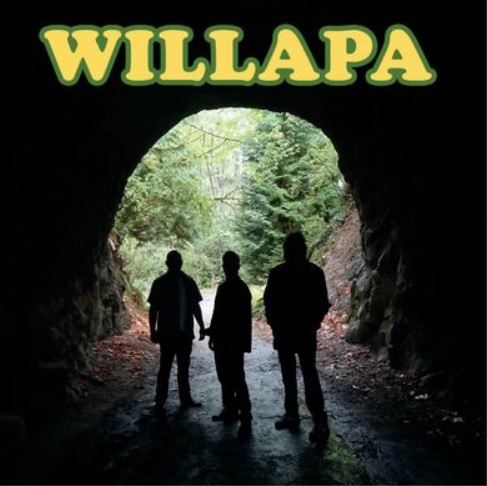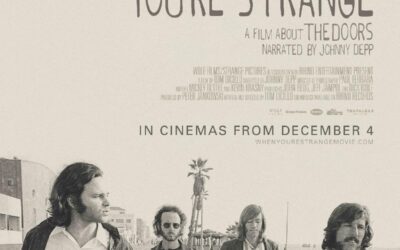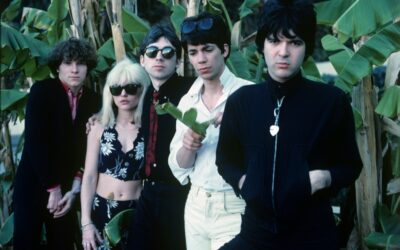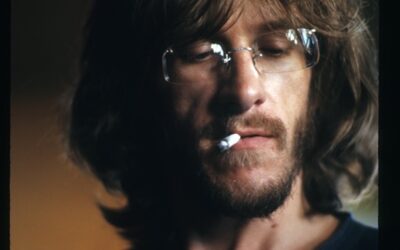By Harvey Kubernik c 2015
“the dreams of youth moving past tower records / the library / of the youth”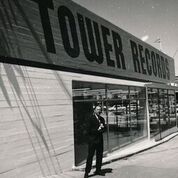
From the poem, “cafes & screenings & academies & descent & personal style & violent dancers”
(Published in Enough the Great Running Chapel, by Harry E. Northup (Momentum Press, 1982)
“Tower Records always had the most complete collection of music available to anyone at any time. Their inventory of every kind of music was just great. They were the best.”
Brian Wilson
“Tower Records on the Sunset Strip was like Disneyland for music fans. It wasn’t just a store, it was a destination. You could find everything and the place was always buzzing. Every visit was like going to a great party.”
Jackie DeShannon
Established in 1960, Tower Records was once a retail powerhouse with two hundred stores, in thirty countries, on five continents. From humble beginnings in a small-town drugstore in Sacramento, Tower Records in 1999 generated $1 billion. In 2006, the company filed for bankruptcy.
What went wrong? Everyone thinks they know what killed Tower Records: The Internet. But that’s not the story. All Things Must Pass is a feature documentary film directed by Colin Hanks examining this ground-breaking company’s explosive trajectory, the tragic demise, and legacy forged by its rebellious founder and visionary, Russ Solomon.
The movie is booked for theatrical screenings during November in California, Connecticut, Colorado, Florida, Massachusetts, Maryland, New York, North Carolina, Ohio, Texas, Washington DC, Wisconsin, Nashville and Virginia,
Russ Solomon, former Tower employees along with Bruce Springsteen, Elton John and Dave Grohl are on-screen interviews.
I went to the 1970 opening of Tower Records in Los Angeles on Sunset Blvd. The first LP I purchased there was the debut album of Leon Russell.
I knew the location already as I used to frequent the same space, formerly occupied by electronics wizard and entrepreneur Earl “Madman” Muntz. Earl sold gadgets, installed stereo units and 8-track cartridge players in automobiles. The musical genius and arranger Jack Nitzsche was the first person in town I remember who had a stereo installed in his vehicle by Muntz.
All Things Must Pass is a very important movie for anyone who ever found sound and audio romance in a record store. It is a melodic, spiritual, retail and cautionary rack-job celluloid tale.
Filmmaker Colin Hanks has really connected the cinematic seeds of Tower’s birth that began in Sacramento and sprouted globally.
After viewing All Things Must Pass, I no longer feel any sense of guilt whatsoever from offering a lit match one night to singer/songwriter Bobby Womack for his Kool Menthol cigarette in the sacred back room of the Tower store in L.A., under a No Smoking Sign.
Actor/director Colin Hanks is a founding partner at Company Name with producer Sean Stuart, where he primarily directs and produces documentary films.
Colin is also known for his success as an actor, and coming off his Emmy Award- and Golden Globe-nominated performance in the FX miniseries Fargo, Colin has most recently finished shooting Elvis and Nixon, a recreation of the meeting at the White House between Elvis Presley and President Nixon, starring alongside Kevin Spacey and Michael Shannon. Hanks currently stars as Greg Short in the CBS-TV sitcom, Life in Pieces.
Harvey Kubernik: How did All Things Must Pass come together?
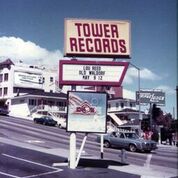 Colin Hanks: It’s been a long journey, that’s for sure. It started off at a dinner I was having around the time the stores were closing. Someone said in passing, “Hard to believe that it all started in that tiny little drugstore in Sacramento.” It was like a light bulb went off. I knew the company had started in Sacramento. It had always been a source of civic pride.
Colin Hanks: It’s been a long journey, that’s for sure. It started off at a dinner I was having around the time the stores were closing. Someone said in passing, “Hard to believe that it all started in that tiny little drugstore in Sacramento.” It was like a light bulb went off. I knew the company had started in Sacramento. It had always been a source of civic pride.
“The hometown aspect is a really great by-product of it. And obviously, the hometown connection for me and my producing partner Sean [Stuart] is undeniable. We felt like we were incredibly lucky to have been raised in Sacramento, so we inherently knew an important facet of the story: here is not only Russ Solomon, but also this group of people that are from Sacramento who all went off to do this incredible thing around the world. We definitely felt we understood all of this, being from Sacramento.
“Some of my mother’s close friends had even worked at both the Sacramento and San Francisco locations, but I didn’t know about the beginnings of the company. That truly got my wheels spinning. I was dumbfounded that no one else had made a feature-length documentary on this amazing company.
Q: How did you first become interested in Tower Records and Russ Solomon?
CH: Once you meet Russ, it only takes about three seconds to know that he is a total character and just a really great guy. It actually started much earlier than that. I suppose growing up in Sacramento and going to Tower to buy my first cassettes and CDs was the starting point. I have a lot of memories of those stores as a kid. As I got older, going to other stores around the world and knowing that they were somehow connected, that left some residual impression on me. It was that initial light bulb moment: hearing how the company started and witnessing how it was ending. That seemed like one hell of a ride that would probably make for an interesting film.
Q: What are the fundamental elements/themes of the film in your opinion?
CH: The overall theme for the film is in the title: All Things Must Pass. All great rides have to come to an end sometime. It’s like what they yell out in the bar at closing time, you know? That was an initial theme from the beginning. As we dug deeper and got to know the people involved, I was really struck by the family aspect, that bond. These people came together and did something truly special. They Some of the staff spent close to 30 years of their lives working on making Tower into what it became.
“I remember which stores I bought specific records from. I tried applying to two different Tower locations during college, but I never heard back. As always, there was a long line of applicants in front of me.
Q: What was the most surprising message from those featured in the film?
CH: It’s been a challenge making a music documentary that isn’t focused on one band or one star, but rather on the dedicated staff in the stores. The managers and employees are not always the most celebrated people in rock and roll – but most of time, they are the ones you can relate to the most.
“It’s a documentary about a guy and his band of misfits who worked in the music business, bonded together, took over the world, had the time of their lives thinking the party would never end – only to have someone flip on the lights and kick ’em out at the last minute.
“My hope is that those who were actually there will remember how great it was and what a unique moment in time it became when Tower first started opening their doors in Sacramento, San Francisco, and Los Angeles. For those who weren’t around, I want them to wish that they were!
“At the end of the day, I hope it makes everyone want to go directly to their local record store and spend some time going through the bins. You never know who you might meet, or what cool new band or music you might discover.
Q: Tower Records established its own culture and a place where music was sold.
CH: Definitely. You know, in a strange way Tower Records was much more about the hang, than about a business transaction. It was really about this 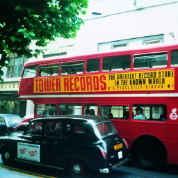 being a place you could go and hang out. You could do nothing. You don’t have to buy anything if you don’t want, or if you can’t – which is an important distinction. Also, there are people there that you can have conversations with. You can meet people in the store that are other customers or work at the store that are might possibly change the way you look at things. It’s a romantic or simplistic way of saying it, but I think it is kind of true; if you can turn someone onto a record or an artist that you have never heard about, and that becomes “the record that changes your life,” that’s a big deal.
being a place you could go and hang out. You could do nothing. You don’t have to buy anything if you don’t want, or if you can’t – which is an important distinction. Also, there are people there that you can have conversations with. You can meet people in the store that are other customers or work at the store that are might possibly change the way you look at things. It’s a romantic or simplistic way of saying it, but I think it is kind of true; if you can turn someone onto a record or an artist that you have never heard about, and that becomes “the record that changes your life,” that’s a big deal.
“I think that’s a big reason why I wanted to make the documentary, even if I didn’t know this while I was doing it. So many people are concerned about missing that personal bond that you often discovered at the best retail outlets. Are we all missing stuff by not visiting brick and mortar stores? Yes, I believe in all of that. I really think at its core, we’re talking about that individual connection you make with a record or with a band. And you remember that. Tower was always like the residue of that exchange. You know what I mean?
Q: Talk to me about Russ Solomon. Working with him and how you wanted to present him.
CH: We booked this meeting with Russ, and I had a pre-conceived notion of what a CEO guy would be. Then you meet Russ and he’s the coolest guy in the world. He’s very friendly, nice, sharp and funny. He laughed at us at first: “Let’s do it, but you guys are crazy…you’re nuts and you’re never gonna make any money.” I’m still trying to prove him wrong on that one.
“Russ was very adamant about being honest. I almost kind of laugh at my idea of what he was like, prior to our first meeting with him. I was incredibly intrigued by this idea of this guy who starts off selling used records out of his father’s drug store. 1940s Americana. This began in a drug store pharmacy and actually ended up becoming this huge gigantic company.
“You know, the biggest saving grace of all this – and it was really purely luck – was the fact that I somehow stumbled upon this idea of a documentary and then met the guy who was arguably responsible for it all. Then, he just happened to be a charismatic guy who could talk for hours about every tiny company detail that existed for forty years.
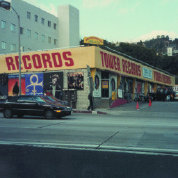 “That was really when the doc started to take on another life of its own. And the story was really coming to us, as opposed to the other way around. It’s much more about the team. What everyone is able to do as a family, as opposed to any one individual effort. To have that point of view is incredible – and for us, to hear that from other people, saying ‘Russ told me I should do this.’ Russ wanted us to tell the truth from their perspective.
“That was really when the doc started to take on another life of its own. And the story was really coming to us, as opposed to the other way around. It’s much more about the team. What everyone is able to do as a family, as opposed to any one individual effort. To have that point of view is incredible – and for us, to hear that from other people, saying ‘Russ told me I should do this.’ Russ wanted us to tell the truth from their perspective.
HK: A lot of music documentaries are made by music lovers and fans. You’re an actor who has done episodic television and big-budget movies, and one thing that struck me, maybe it was your budget or experience in front of other directors, or that you are a fan of documentaries as well as vinyl, that most of the interview subjects are so forthcoming and well lit.
CH: I would like to take credit for all of the interviews. I can take credit for about half of them, really, because eventually we brought on a screenwriter, Steven Lekart who did a really great job of not only getting on the team but helping craft the story.
“Not only from the story perspective in terms of the beat we wanted to get throughout the course of 40 years. But also our interview style it was incredibly beneficial for me as the director.
“It’s much more about the team. What everyone is able to do as a family as opposed to any one individual effort. And to have that point of view is incredible. And for us, to hear from the other people, saying Russ told me I should do this and Russ told me I should tell the truth from their perspective. That kind of assistance I can’t even begin to describe how important that was. And we didn’t even have to try and bring that out of people. Russ would say, ‘They’re really good. You just tell them what you want. You tell them the truth and your opinions and let’s help these kids out.’ Without that, this movie does not work. Without that we don’t have a movie. (laughs).
HK: Russ helped you find the narrative for the film.
CH: Absolutely. You know, the biggest saving grace, and it is really purely luck, was the fact that I somehow stumbled upon this idea of this documentary and then met the guy that was arguably responsible for it and that he just happened to be such a charismatic guy that he could talk for hours about any tiny detail about this company that existed for forty years. And he would be able to tell you stories about it. And they would be engaging stories that would be interesting. That not only have a beginning, middle and end, have color and flair to it. That kind of personality is obviously beneficial to us as filmmakers. But obviously was incredibly beneficial to him as a businessman. Because that was how he was able to accomplish what he was able to do. The fact that he was a gregarious outgoing fun guy who was good at seeing a good idea and run with it. He was able to trust people. I love seeing him. I love sitting next to him and listening and talking to him. Because he’s a fun guy to be around. And I learned so much from him from these past seven years. I just think the world of him. I just went to his 90 birthday. And it was more fun than the majority of birthday parties I’ve been to put together.
Q: Bruce Springsteen and Elton John are forthcoming and passionate talking heads in the movie.
CH: I knew very early on from the stories I read and was also told later from the Tower people, that Elton had this very famous quote: that if he had to do it all over again, he would want a job working at Tower Records. I knew about his connection and passion for the store and thought, ‘If this is going to be the definitive Tower Records documentary, then we have to have Elton John.’ So we did everything we possibly could to get him into the film. Both Elton and his team were incredibly gracious to us in helping make that happen.
HK: Bruce Springsteen and Elton John are wonderful talking heads in the film. In 1975 I went to Tower Records on Sunset Blvd. with Bruce Springsteen. He bought a copy of The Byrds Greatest Hits, and that night at the Roxy Theater encored with “Goin’ Back.”
“I really liked his appearance in your film describing his relationship with Tower. Bruce and Elton John reinforced to me that they’re record geeks and collectors. Like all of us.
C.H.: Look. There’s a reason why they are who they are. ‘Cause when you get them in front of a camera and you ask them something, or a question about a subject matter that they are passionate about, which is music or buying records, they will give you the good quote. They will give you the goods. And they were both fantastic.
“Elton said one line that he gave us that we actually didn’t put in the film, that was very funny. He said ‘buying records was better than sex.’ I almost fought to keep that in. When they give you so much good stuff you kind of have to share something for the DVD. (laughs).
“The same goes for Springsteen. The funny thing about Bruce was when he came to the interview, he actually said to me, ‘I don’t know how many Tower stories I have.’ I said, ‘I’ll just ask you some questions and if you think there is anything you can’t speak to, don’t worry about it.’ I asked him one question and he talked for about 15 minutes. Almost everything he said in the documentary was in that first answer. I asked him maybe five questions. That was the entire interview. He really came through for us.
“Dave Grohl formerly worked at Tower, and that was a very specific reason why we spoke with him. With Bruce and Elton, they shopped at the store; that was it, that was all they did. Elton bought extensively from Tower Records in Los Angeles as well as Atlanta. Bruce sort of seems to be the guy who hung out there a lot. And he kind of speaks to that.
Q: George Harrison’s recording of “All Things Must Pass,” a Phil Spector production with Harrison, plays over your end credits. Talk to me about  securing licensing and permission from the Harrison estate for usage.
securing licensing and permission from the Harrison estate for usage.
CH: All Things Must Pass was not always the title of this film. But I went up to Sacramento on a lark and decided to drive by the old Tower Records store, which was still there and intact. And that sign was still up: All Things Must Pass Thanks Sacramento. And I just went, “Oh My Gosh! That’s the theme…” Even the best parties have to end. And all things must pass.
“That was a pretty obvious sign of what this thing needed to be called. And obviously it made perfect sense thematically. I really liked the fact it was a store employee that put that sign up, I thought there was some poetry in that. Of course I wanted to do everything I could to use the song. But I’m also cognizant and respectful of the fact that the song had personal meaning to George and has a very special meaning. And, so I’m very fortunate that I’ve met Olivia [Harrison] on numerous occasions and that I met George once a long time ago. He was an incredibly kind man.
“I sent her the film and said, ‘I would really like to be able to call this movie All Things Must Pass. I’d really like to be able to use the song. But know you have final say on this. And you can not hurt my feelings in anyway shape or form. We’d be really honored if you let us do this.’
“She came back to me after a weekend. ‘I’ve watched it twice. I love it. I can’t believe this story. What an incredible story. Yes. Absolutely. Go right ahead.’
“So when we were making the documentary, I came up with a list of a bunch of songs and artists that I like and slipped that to my editor. “Here’s a bunch of music that I dig. By all means find out whatever works.”
“I talked about the idea of wanting to find music for not only the eras in which the movie is taking place, with the stories taking place, all the different genres that would fit within a Tower Records. Deep catalogues and every different type of music imaginable. And Darrin Roberts, our editor, who is also a big music fanatic, he found stuff I had never heard of before. And we were able to incorporate a lot of that in the doc as well. It was really, ‘Let’s find the right stuff.’ ‘Cause at the end of the day, especially with movies, it ends up kind of being music telling you how to feel. And it was fun to be able to be able to do that. I hope we can do a soundtrack.
“Tower Records was where I got a lot of my imports, especially for my glitter/glam club Rodney’s English Disco. When that club was happening in full swing in the 70’s, there was a British Import record I forgot to bring to play that evening. I ran down to Tower Sunset to see if they had it, and lo and behold – they had it, I got it and ran back to the club and immediately started spinning it…
“Because Tower was open 10-Midnight, Every Night — it was one of the best places to shop anywhere, because of the late hours. Their book section was amazing too, you could browse there all night until closing.
“It was always ‘All Happening’ at Tower Records Sunset.”
Rodney Bingenheimer
KROQ-(106.7) FM
“There were two places in Los Angeles where I knew I could escape. One was the self-realization fellowship on Sunset Boulevard where Paramahansa Yogananda taught – and the other was Tower Records also on Sunset. Worlds apart but not really, searching for rock ‘n’ roll records and self-awareness is to me almost the same thing… either way, in both places I felt at peace and inspired all at once.”
–Michael Des Barres
End of Sidebar
Producer Sean Stuart is a founding partner at Company Name with Colin Hanks.
Harvey Kubernik: What attracted you to the story of Russ Solomon and Tower Records?
Sean Stuart: You never know until you sit down with the person who is your interview subject and five minutes into that first conversation with Russ — Colin and I kind of gave each other a look, and realized that this is a special person with a special story. We also realized that not only is this a music doc, it’s an incredible human interest film. We knew then that it would be worth our time and energy, and later worth all the effort over seven years.
Q: As you dove into this project, what became more obvious to you about Russ Solomon and the impact of Tower?
SS: What we as filmmakers hope to achieve is to find the story, find the theme, discover that overriding umbrella of a concept – a music documentary – and make it bigger. We also needed to find other places where people can grab onto things that are broader, and more interesting and more identifiable.
Q: Discuss the movie music utilized
SS: There will always be record labels that are initially difficult to crack the egg with regard to music licensing. When we approached major artists such as Steve Miller, the Beach Boys and the Rolling Stones – they got reminiscent at times, and they saw it as our history and legacy. They ultimately felt they needed to jump in and help with this, because it’s going to be a great story.
“When we pursued rights holders and record labels, we found that they understood the story, because they actually lived the story. They appreciated the narrative from a broader music industry standpoint. No one really needed to know what the movie was about. For the most part, they got what we were trying to achieve. Colin and I were quite vocal and very descriptive with all of them about what this movie was intended to be. Most people were pretty excited to have this story told.
“I was employed in the San Diego and Westwood stores, and filled in several times in Hollywood. That was 1975-77.
“I spent my allowance and my Wonder Years at Tower Records before I became an employee and acolyte. It changed my life in more ways than anyone can imagine: it was the sun at the center of my personal solar system, opening my life to life, love, music and movies! For better or worse, I would not be who I am without having passed through the Tower Dimension.”
Mick Garris,
Filmmaker/Author
“One of my ambitions when I first set foot on U.S. soil was to visit Tower Records on Sunset Boulevard. As a kid growing up in England we were always reading about these cool places in the states, CBGBs and The Bowery in New York, The Troubadour, The Roxy and The Rainbow in L.A. and of course, Tower Records. This was also in the days before CDs, so it was a ‘real’ record store…
“When I did finally get there I couldn’t believe it, it was so massive, one could spend an entire day in there and only get to see half of what they had … It was essentially a toy shop for grown-ups and boy did we come out of there with armfuls of records! It was a terrific experience, the likes of which I fear may have gone forever, but we live in hope …..”
Joe Elliott of Def Leppard
“When Tower opened up, it really helped esoteric and unusual independent record labels like our now 62-year old GNP Crescendo Records, because they would literally carry everything. Of course, Tower on Sunset Blvd. was my second home. I hung out there a lot, since the GNP Crescendo office was right up the street.
“My father Gene Norman and Russ Solomon went back to the very early fifties. They were good buddies and had a wonderful relationship. Russ was, and is, a real gentleman. The Tower chain was dynamite and sold hundreds of thousands of our records. Congratulations on the documentary.”
Neil Norman: GNP Crescendo Records, producer, musician
In 1968, Russ Solomon leased a storefront building in San Francisco for a second Tower retail outlet. Solomon then expanded to West Hollywood in 1970, and then 26 more locations by 1980. Over the next decades, their business spread across the globe. In 2006, Tower was forced to liquidate and declare bankruptcy. The first LP time that Solomon ordered a hundred copies of for his Sacramento store in the fifties was by Spike Jones and His City Slickers. In 2015, the 90 year-old Solomon is currently very active in photography.
Harvey Kubernik: Why did you consent to actively participate in this film?
Russ Solomon: From time to time, people talked to me about doing a book on the company. Colin and Sean had this idea they came up with. There was a third partner and he was very good friends with my dentist. The dentist fixed us up and we had a meeting. Of course, I told them right off the bat they were nuts. “Why would anyone want to see a movie about a record store?” They persevered, and seven years later here it is…
“What they did was they found a writer [Steven Leckart] and made a story out of it – they got a good editor and the whole thing came together. At the end of the day, after initially thinking, ‘how are they gonna pull this thing off?’ I actually enjoyed it. I think it got the essence of what we were all about.
Q: Tower Records made sure everything was stocked. Did you and staff ever realize that you were educating us?
RS: We carried everything. For me, it goes back to 1949 when I visited New York and Sam Goody. The real guy, you know. He had this store over on 49th street. He was a guy who made LP’s happen. He really was. His whole idea was that he didn’t really understand or care too much about pop records, jazz, blues, country or anything else, in that regard.
“He was into classical music like mad. Had the greatest selection of the times. He really made the whole idea happen. He also was the only record store, or record retailer, I guess you could say, he was the only store doing like five million dollars a year. That was so far away from any other record store or record department or certainly us were, this was really aspirational. If he can do it we can do it. How do we do it? You know there are all kinds of tastes and all kinds of cities that have this music culture around them and so, it was just a case of ‘there’s a market out there that like a certain kind of music. Why shouldn’t we have it. Why shouldn’t we have it all if we can?’
“It goes back a little further to my dad’s drug store. In the beginning 1,600 square feet and then we expanded to 2,400 feet. He was a druggist. Really didn’t like the pharmacy part of the business, even though he did it all the time, it was the backbone of the store, but he loved the cosmetics, toys and candy, liquor, sundries, gift items. The whole shebang. The whole attitude came out of his experiences in the drug store business in the thirties. Drug stores were challenging each other. The chain drug stores were just beginning. But the whole idea was to carry this huge variety of merchandise. The pre-cursor of the great drug stores you see today that carry just about everything they can get their hands on.
Q: Did the emergence of rock FM radio, in 1966 and ’67 impact you and Tower in Sacramento or further suggest an expansion to a store in San Francisco was essential?
RS: It wasn’t long after KSAN-FM and that bunch started up, that we got a station in Sacramento, KZAP. A copy cat in a way in that you turn the disc jockey loose and you close the door and let him do whatever he wants. Which was wonderful. The people in Sacramento were mirroring San Francisco and then it kind of caught on down in Southern California, too. L.A. then was beginning to develop like mad. All those artists were already beginning to live down there and make music. Sonny & Cher and on and on.
Q: I think your plan for opening a San Francisco store in 1968 was a big factor in expanding the visibility of Tower.
RS: Well, it was very serendipitous to say the least. Between 1952 and 1960 I had another little company simultaneously, while also having a retail store here in Sacramento. The company was called Record Supply, which was one of the very early rack jobbers and one-stops. We had a warehouse in San Francisco, over on Mission.
“First of all, I was born in San Francisco, but I never really lived there. I always believed that was the place to go and oddly enough, I don’t know why, it seemed that we shouldn’t be downtown in the business district. We had to be somewhere else that was right – and the accident of finding that place was marvelous.
“The independent labels that came out of the fifties and early sixties helped drive the retail environment. The independent guys were the ones who started it all and drove it forward. They were pretty marvelous. That was the heyday. People like Syd Nathan at King Records, Gene Norman at GNP Crescendo Records, and the Chess Brothers.
“Tower stocked the blues and gave it floor space. I think that my staff knew all about it and liked it. If we had a kid in one of our stores who liked blues or country music, we had a lot of blues and country music in that store. You hunt around for somebody to hire who really knows and loves music.
“You gotta look at the timing. We really hit it at exactly the right time.
“We had all that experience of selling music that came out after World War II, 1946 to 1967. Then the Summer of Love happened down at Monterey, Rolling Stone started in 1967, and we really got going in 1968.
“Before then, all through those formative years the kids in Sacramento were going into San Francisco on the weekends. They were dressing up what would be now be called hippie clothes, and hanging out and bringing back the whole culture that was happening down there. Sacramento was not that at all, it was hanging onto the coattails of a previous time. Tower and many of us moved into San Francisco and became part of the new swirl. I like to say that we got onto the wave and rode the damn thing until we it went ashore.
“It could not have been a more perfect spot. From a standpoint of timing. It was an accident. The combination of Bill Graham, the Fillmore, Rolling Stone, and us. In the very beginning for a little while, we were their number one sales outlet. They could put a whole pile of magazines in and they’d all get sold. Tower was a destination stop. People saw one of Graham’s shows and immediately then went into the store and got an album. Not from the headliner but one of the opening acts.
Q: The movie also explains your unique concept of management.
RS: I always belonged to what I call the ‘Tom Sawyer’ theory of management. He sat back and watched the other people paint the fence. That’s a good idea. First of all, they know more than I do, they are on the street with it. What am I gonna do? Press my word or my tastes and everything else upon them? Not a good idea. It was just a natural thing.
“I was also lucky, growing up in the retail business at my dad’s drug store. I started working there when I was 13 years old, and he was a loose kind of guy. He was not a micro-manager or anything. He went into business without any money at all and worked hard and made a good living out of it. To me the whole idea was natural.
“When we got into financial trouble, the banks brought on inexperienced people who did micro-manage and did go for central buying and things like that. I felt that was a terrible idea, I fought it but got nowhere.
“After seeing a band at the Fillmore in San Francisco we would head to Tower before midnight to get the latest release of someone we had just heard live. Tower was the place to go for music, people or a quick hook up.
“I spent almost a year employed at the Columbus and Bay location. The only drawback was getting carried away with buying records – and then when my paycheck arrived, it was a big Whoops! My check was low due to buying too many records that then had to be deducted from my pay… Truly The Mutha Of All Record Stores.”
Carol Schofield, MsMusic Productions
“Russ Solomon was a head case…He had crazy plans and thoughts. The kicker was that he could and he did make most of them happen. When one of our records got piled up on the floor, it was a reason for celebration. A great story of a great adventure that we in the business believed would have a limited life when the new technology arrived. It did and the great ride ended.”
Joe Smith,
President and CEO Capitol-EMI Music 1987-1993
Chairman of Elektra/Asylum Records 1975-1983
President of Warner Bros. Records 1972-1975
Special Thanks: Russ Solomon, Elliot Kendall, Gravitas Ventures, Sunshine Sachs and Company Name.
A portion of this story appeared in Record Collector News Magazine October 2015 issue.
(Harvey Kubernik has been a music journalist for over 44 years and is the author of 8 books. In February 2014, Kubernik’s book It Was Fifty Years Ago Today The Beatles Invade American and Hollywood, was published by Other World Cottage Industries.
During 2014, Harvey’s Kubernik’s acclaimed Turn Up the Radio! Rock, Pop, and Roll in Los Angeles 1956–1972 was published by Santa Monica Press.
In September 2014, Kubernik wrote Leonard Cohen: Everybody Knows, published in six foreign languages, including BackBeat/Hal Leonard Books in the United States.
Harvey and Kenneth Kubernik penned the text for photographer Guy Webster’s award-winning book for Insight Editions published in November 2014. Big Shots: Rock Legends & Hollywood Icons: Through the Lens of Guy Webster. Introduction by Brian Wilson).
In October 2015, Back/Beat/Hal Leonard published Harvey’s book on Neil Young, Heart of Gold.)


